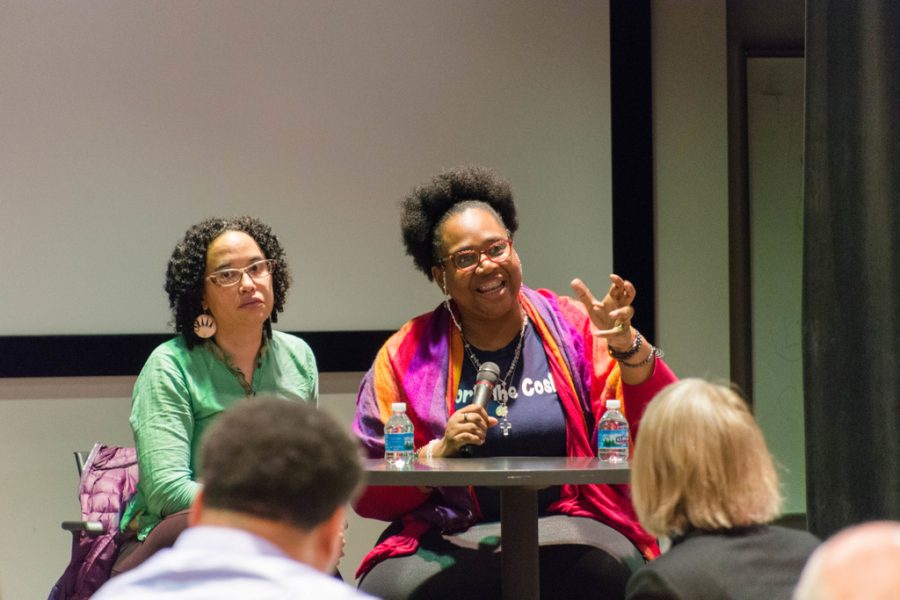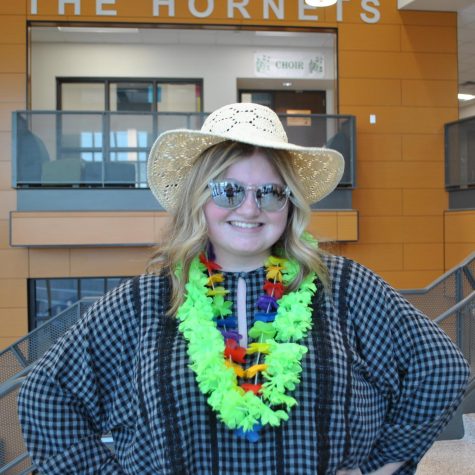The Future of Public Education Needs Reevaluation and Reform
May 21, 2018
On April 11, Edina Public Schools hosted a forum at the Normandale Elementary Auditorium to discuss the future of the district’s education and curriculum. The two guest speakers, Taiyon Coleman and Shannon Gibney, are both college professors and professional writers who are interested in facilitating conversations about education in Minnesota. Both have a background in and an understanding of the condition of the modern-day educational system, and offered valuable insight at the forum regarding how the Edina community can make gradual changes by “looking through a new lens” that will significantly impact school children for the greater good.
“Post World War II, the G.I. Bill of Rights completely changed the fate of education in the U.S. by enabling low-income students of all races to have the opportunity to gain a college education,” Coleman said. But, Gibney mentioned, as we look at education today, it is essentially centered around class and racial identity. The essential question that Gibney and Coleman continue to scrutinize in their working novels and community forums is: Has the government fulfilled the dream or expectation of Horace Mann, founder of the public education system?
Coleman suggests that segregation has been reinscribed in Minnesota through the public school system because students are only allowed to attend schools that are a part of the district that they reside in. Therefore, if a child lives in a low-income area of Minneapolis, there is a fraction of a percent that they would ever get to go to a high performing school like Edina because of the high demand on the waiting lists. At many underserved schools in Minneapolis, only 30% of the children read at grade level, according to Coleman, whose children are currently enrolled in Minneapolis schools. This is because of the public school curriculum that Gibney says resembles the ‘one size fits all’ policy. “Many students living in the poor areas of a big city like Minneapolis don’t grow up speaking English as their first language, so when they start their first day of kindergarten and are spoken to in only English for the first time, their reading, speaking and writing levels aren’t as strong as a child whose first language is English,” Gibney said. Coleman and Gibney argue that the public schooling system is damaged and will continue to be until the mentality of equality turns into equity.
The difference between equality and equity isn’t just in how they’re spelled. They are both two different tactics that are meant to produce fairness. On one hand, equality is the act of treating everyone the exact same, while on the other hand, equity is giving everyone the support they need to be successful. Equality aspires to promote fairness, but it only works if everyone is born with the same parents, with the same amount of money, in the same kind of house, speaking the same language, eating the same foods, watching the same tv shows, reading the same books, and doing the same exact things as each other, therefore needing the same kind of help. Gibney explains that this idea of equality producing the same results is unrealistic, and therefore a major flaw in the public educational system, a major flaw that society has normalized and become comfortable with, which is going to have to be the first step in addressing and changing. “I feel like I am Harriet Tubman and I am trying to get my kids out of the underground railroad,” Coleman said regarding her thoughts about today’s public school system. She explains that as a free people, the lack of choice one has in terms of public schooling is appalling to anyone who promotes freedom of choice and quality education for all.
This communal conversation Looking Through a New Lens is one is a series of city discussions sponsored by Edina Public Schools; the intent of these is to provide opportunities for the community to get together and for participants to deepen their understanding of a variety of different views in order to become more empowered role models of change and respect. “The most radical thing [children] can do is to graduate and continue [their] education. That is the most empowering, that is the most radical thing that [they] can do,” Gibney said. By persisting to understand and view the world through a different lens, one can help to secure a quality education for all students at EPS.


